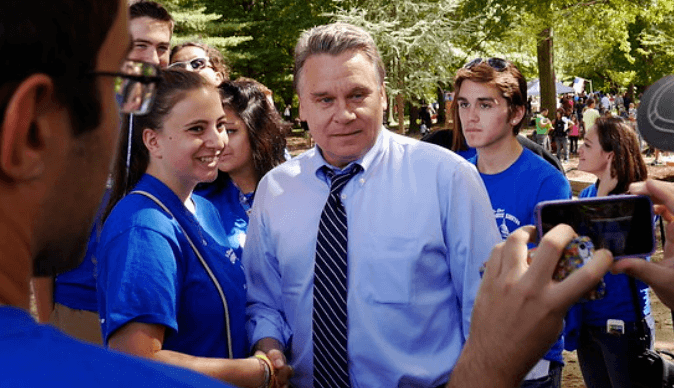By Congressman Christopher H. Smith, December 20 2021
New Jersey Globe
This week (December 21, 2001) marks the 20th anniversary of enactment into law of the Homeless Veterans Comprehensive Assistance Act of 2001 (Public Law 107-95)—the historic, comprehensive law I authored to create a whole-of-government approach to mitigate and ultimately end veterans homelessness.
Twenty years ago, approximately 300,000 veterans on any given night were experiencing homelessness in the United States.
About 80%—suffered disability including post-traumatic stress disorder (PTSD) attributable to their military service and many suffered chemical dependencies including alcohol and drugs.
It was a scandal of government neglect—men and women, who served our country honorably, on the streets of America.
To combat this epidemic, I wrote the Homeless Veterans Comprehensive Assistance Act of 2001, which created a whole-of-government initiative to find, rescue and help restore the lives of homeless veterans.
Real progress has been made in helping homeless veterans.
Today, the number of homeless veterans on any given night has dropped to 37,250—still far too many, but a remarkable decline thanks in large measure to the programs included in my groundbreaking law and the work of many dedicated leaders at the VA and the passion and commitment of America’s veterans service organizations (VSOs).
One of the many programs authorized in my law that continues to provide significant assistance to veterans today is the Housing and Urban Development-Veterans Affairs Supportive Housing (HUD-VASH) program.
In the last fiscal year alone, the HUD-VASH program provided $40 million in new permanent housing subsidies and supportive services for veterans in need. And since 2008, this vital program has given over 105,000 subsidized housing vouchers for more than 80,000 formerly homeless veterans now living in their own permanent housing.
The HUD-VASH program utilizes Housing First—an evidence-based, cost-effective approach to ending homelessness for the most vulnerable and chronically homeless individuals. The Housing First model prioritizes housing and then assists the Veteran with access to healthcare and other supports that promote stable housing and improved quality of life.
Many veterans who continue to get critical, life-sustaining assistance and a home through this program live in our community. The HUD-VASH program is being tapped as a major source of rental assistance funding for veterans living at the new Gordon H. Mansfield Veterans Village that opened last month in Tinton Falls.
Run by the non-profit organization Soldier On, the new facility is an innovative housing complex that will provide 70 one-bedroom housing units in a $23 million state-of-the-art complex for homeless veterans in Monmouth County.
Case management services are also available through HUD-VASH to assist eligible homeless veterans in obtaining and sustaining housing stability while recovering from physical and mental health problems, substance abuse and addictive disorders, and functional concerns contributing to or resulting from homelessness.
Another innovative, critical provision in my law authorized VA programs for dental care to significantly improve both oral and digestive health and help veterans gain greater confidence when applying for and sustaining employment. Last year, approximately 12,000 veterans were provided dental care through the Homeless Veterans Dental Program.
The law authorized important job training, expanded domiciliary care programs, and directed the Secretary to carry out technical assistance grants to nonprofit community-based groups with experience in providing assistance to homeless veterans.
My law also created a grant program for homeless veterans with special needs including women who have care of minor, the frail elderly, terminally ill or chronically mentally ill.
And it created the Advisory Committee on Homeless Veterans to provide year-over-year assessments of the effectiveness of the policies and services created to assist veterans experiencing homelessness. The fifteen-member committee includes housing, medical, and mental health experts as well as community-based providers, previous homeless veterans and vocational and rehab professionals who provide an annual report, with recommendations to the Secretary for critical improvements where needed.
Congress carefully reviews the recommendations with an eye towards enhancing those services that foster homelessness prevention and the rehabilitation of those veterans who have struggled with reintegration into civilian life.
As former Chairman of the House Veterans’ Affairs Committee and author of more than a dozen laws to help veterans, I remain committed to protecting veterans’ benefits and programs to help ensure that the men and women who have defended our country—and those who are serving our country today—continue to have access to the resources they have earned.
Smith: Real progress in helping homeless veterans – New Jersey Globe

